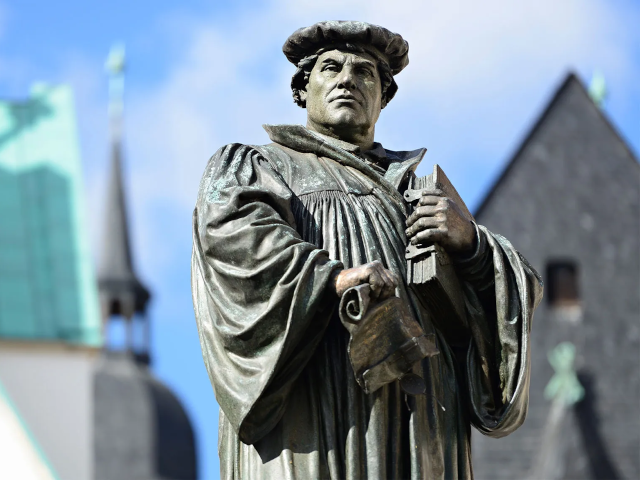Reformation Day Explained: Religious tradition celebrated on Halloween
Reformation Day 2024 marks 507 years since Martin Luther’s protest sparking global religious and social change.

Reformation Day, observed each year on October 31, marks Martin Luther’s influential stand in 1517 that triggered religious transformation across Europe.
Luther, a German monk and theologian, boldly questioned the Catholic Church's practice of selling indulgences—pardons for sins—by posting his Ninety-Five Theses on the door of a Wittenberg church. This list of arguments went beyond academic critique; it directly challenged the church's practices and authority. As historian Diarmaid MacCulloch describes it, “Luther’s action was like a stone thrown into a millpond; the ripples spread out across Europe and beyond, changing the religious landscape forever.”
Today, many Protestant Christians worldwide observe Reformation Day as a reminder of the importance of individual faith and personal access to Scripture. In Argentina, for instance, October 31 is now celebrated as the National Day of Evangelical and Protestant Churches. This year marks the 507th anniversary of Luther’s act, a catalyst for making the Bible accessible to ordinary people by translating it into everyday language. Stephen Wesley from Voice of the Martyrs Canada notes, “Luther’s influence continues to impact the world today, inspiring people to seek personal understanding of Scripture.”
The Reformation’s impact reached far beyond religious doctrine. Its principles inspired shifts in social and political thought, shaping ideas of freedom of conscience, literacy, and education, and promoting the use of vernacular languages. One of its most lasting legacies was its focus on literacy and critical thought, which encouraged personal engagement with Scripture. According to scholars, this contributed to the Enlightenment and even modern scientific inquiry.
Reformation Day is observed worldwide in diverse ways. In Germany, it’s an official holiday in several states, marked by church services and educational events. In the United States, many Protestant churches honor the day on the last Sunday of October, known as Reformation Sunday. In the digital age, social media has extended the day’s significance, enabling global discussions on faith, history, and social change—much as Luther once used the printing press to spread his ideas.
In recent years, Reformation Day has also become a focal point for ecumenical dialogue. In 2016, Pope Francis joined Lutheran leaders in commemorating the Reformation, marking a step toward reconciliation. The Reformation’s core principles—critical thinking, personal responsibility, and the pursuit of truth—remain relevant today, encouraging individuals to question assumptions and seek personal growth. As Reformation Day 2024 approaches, it serves as a moment not only to honor historical events but to engage with the ongoing process of reform in faith, society, and individual life.

1725099588-0/BeFunky-(41)1725099588-0-208x130.webp)

















COMMENTS
Comments are moderated and generally will be posted if they are on-topic and not abusive.
For more information, please see our Comments FAQ